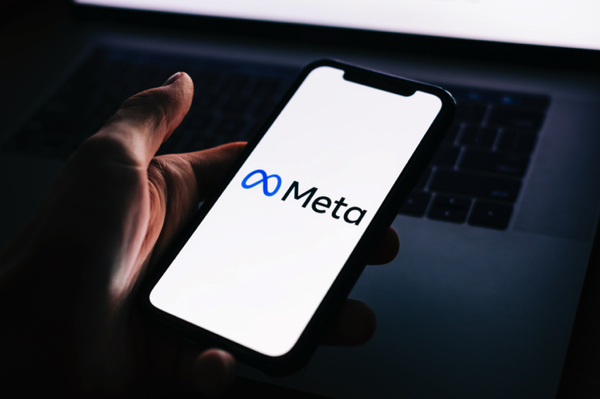Federal court allows Mississippi to enforce social media age verification law
07/24/2025 / By Laura Harris

- A federal appeals court has cleared the way for Mississippi to enforce House Bill 1126, a law requiring social media users to verify their age before accessing platforms.
- Named after a Mississippi teen who died by suicide after online sextortion, the “Walker Montgomery Protecting Children Online Act” aims to protect minors from online threats like exploitation, harassment and harmful content.
- The law was initially blocked in 2024 by U.S. District Judge Sul Ozerden over constitutional concerns, but the Fifth Circuit Court of Appeals has overturned that decision.
- State officials and child safety advocates claim the law will reduce risks such as child exploitation, mental health harm and exposure to illegal content by ensuring platforms verify users’ ages.
- Tech industry group NetChoice continues to challenge the law, arguing it infringes on privacy, limits free speech and gives the government too much control over online access.
A federal appeals court has ruled that Mississippi can begin enforcing a new law requiring social media users to verify their age.
House Bill 1126, authored by Rep. Jill Ford (R-Madison), mandates that users verify their age before accessing social media platforms to curb a range of online dangers, including exploitation, harassment and exposure to harmful content. This law is called the “Walker Montgomery Protecting Children Online Act,” named after a Mississippi teen who reportedly committed suicide after being blackmailed by an online predator operating from overseas. (Related: Indiana and Mississippi SUED over online age verification laws.)
The law, originally set to go into effect in July 2024, was halted last year by U.S. District Judge Sul Ozerden, who questioned its constitutionality. Ozerden granted NetChoice’s request for a preliminary injunction, stating that the group had demonstrated “a substantial likelihood of success on the merits” of its argument that the law may be unconstitutional.
However, a three-judge panel from the Fifth Circuit U.S. Court of Appeals overturned the lower court decision and ruled that the state is now cleared to implement the regulation.
“Enacted after a sextortion scheme on Instagram led a 16-year-old Mississippian to take his own life, the Act imposes modest duties on the interactive online platforms that are especially attractive to predators,” Mississippi Attorney General Lynn Fitch wrote in court documents.
Furthermore, Fitch argued in a filing to the appellate court that enforcing age verification requirements could help protect children from a range of dangers on social media, including “sex trafficking, sexual abuse, child pornography, targeted harassment, sextortion, incitement to suicide and self-harm and other harmful and often illegal conduct against children.”
NetChoice Litigation Center vows to continue fighting against HB 1126
Parents, experts and even teens have increasingly voiced concerns about the effects of social media on young people. Most major platforms, including Instagram, Facebook, Snapchat and TikTok, require users to be at least 13 years old, but enforcement is often lax. In turn, supporters of HB 1126, along with similar measures in other states, argued that requiring age verification could help reduce risks such as anxiety and depression, which some experts linked to excessive or harmful social media use.
However, critics noted that such laws could do more harm than good.
“An unconstitutional law will protect no one,” said Chris Marchese, director of the NetChoice Litigation Center. “If HB 1126 ultimately takes effect, mandating age and identity verification for digital services will undermine privacy and stifle the free exchange of ideas. Mississippi also commandeers websites to censor broad categories of protected speech, blocking access to important educational resources. Mississippians have a First Amendment right to access lawful information online free from government censorship.”
In response to the decision, Attorneys for NetChoice, the organization behind the lawsuit, said they will continue to challenge the law despite the appellate court’s ruling. The group argued that the measure violates users’ privacy and limits free expression.
Paul Taske, the co-director of the NetChoice Litigation Center, called the decision “very disappointing” and said the group is “considering all available options.”
“NetChoice will continue to fight against this egregious infringement on access to fully protected speech online,” Taske said. “Parents, not the government, should determine what is right for their families.”
Follow PrivacyWatch.news for more similar stories.
Watch the video below about why age verification is another nail in the coffin of privacy.
This video is from the unmasked channel on Brighteon.com.
More related stories:
South Dakota enacts porn site age verification law.
Arizona enacts age verification law for adult websites.
Texas bills to mandate age verification for visitors of adult websites.
Sources include:
Submit a correction >>
Tagged Under:
Big Brother, big government, Big Tech, computing, conspiracy, cyber war, dangerous, digital IDs, freedom, Glitch, HB 1126, information technology, insanity, Liberty, Mississippi, Orwellian, privacy watch, Social media, tech giants, technocrats, Tyranny
This article may contain statements that reflect the opinion of the author
RECENT NEWS & ARTICLES
COPYRIGHT © 2017 INFORMATIONTECHNOLOGY.NEWS



















